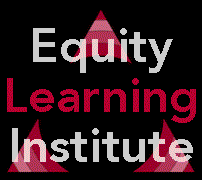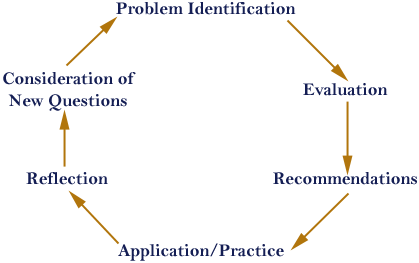
|
|
|
|
an EdChange project by Paul C. Gorski
|




|
Cyclical Stages of TAR for Equity and Multicultural Education
Stage One: Problem Identification: Acknowledge an inequity and the need for change. Can be an existing‹even historical‹problem, or a newly emerged issue. Stage Two: Evaluation: Develop and carry out methods for evaluating the breadth and depth of the inequity and how it informs the experiences of all community members. Evaluation must start with a consideration of the institutional and historical context of the inequity. Stage Three: Recommendations: Based on the Evaluation, provide specific recommendations for change and/or continued evaluation. Stage Four: Application/Practice: Work with the powers that be to take action and institutionalize the recommendations. Stage Five: Reflection: With changes in place, reflect on ways in which new practices affect the school community. Concurrently, reflect on what you, as an individual teacher-researcher, and/or the TAR team learned from the process of the research. Stage Six: Consideration of New Questions: Acknowledge and dialogue about new questions that have emerged from the changes. Have the changes worked? Are there any shortcomings? Did the team uncover additional issues or inequities in the process of the TAR?
More on Teacher Action Research for Equity and Multicultural Education:
|
